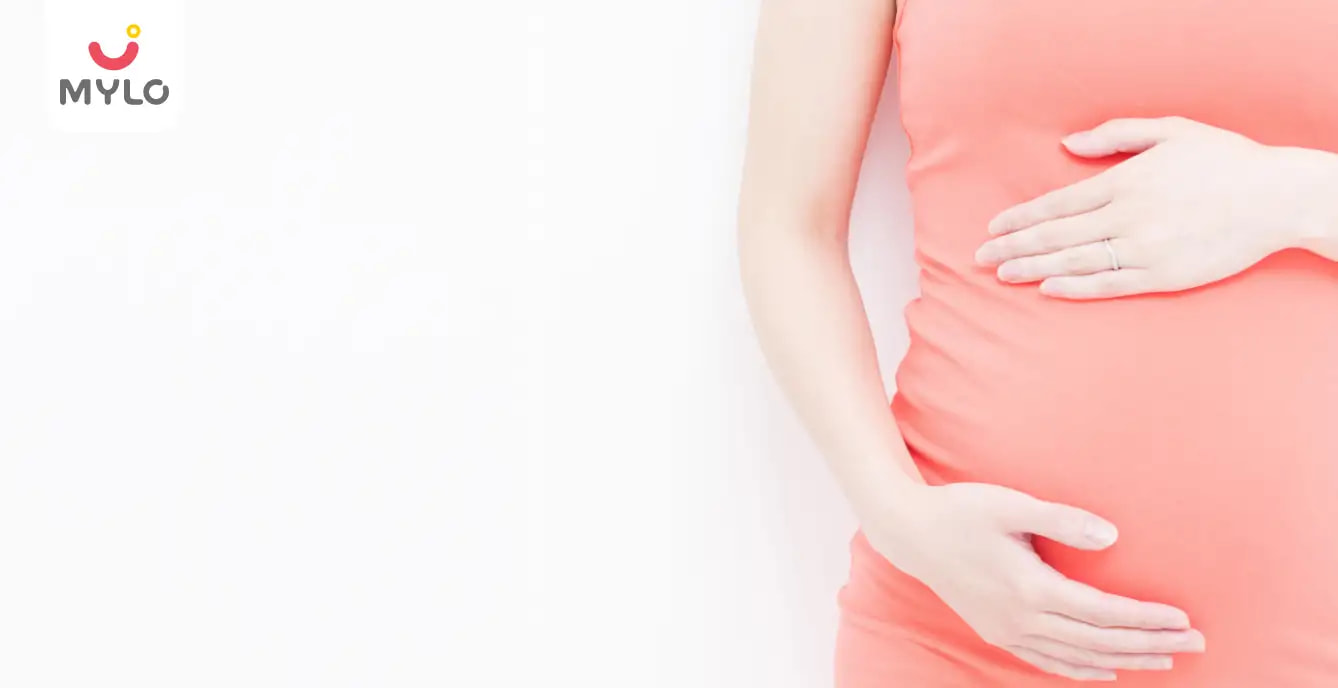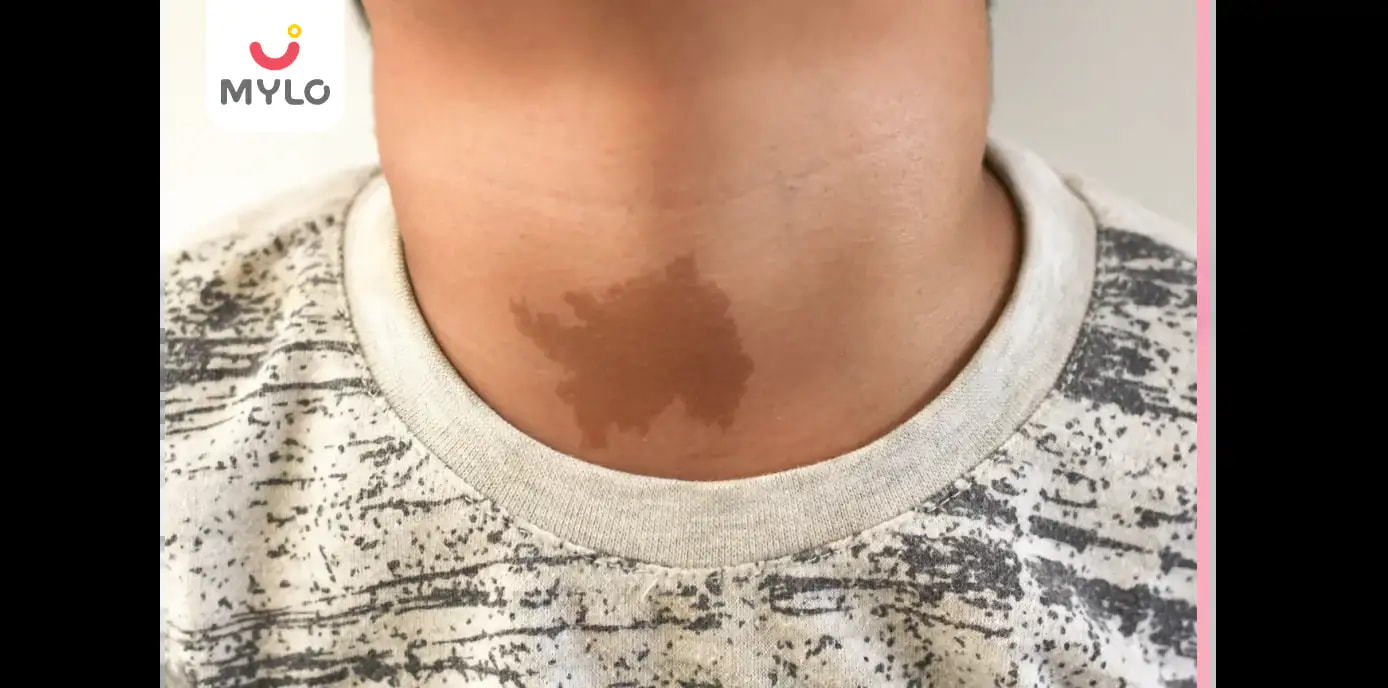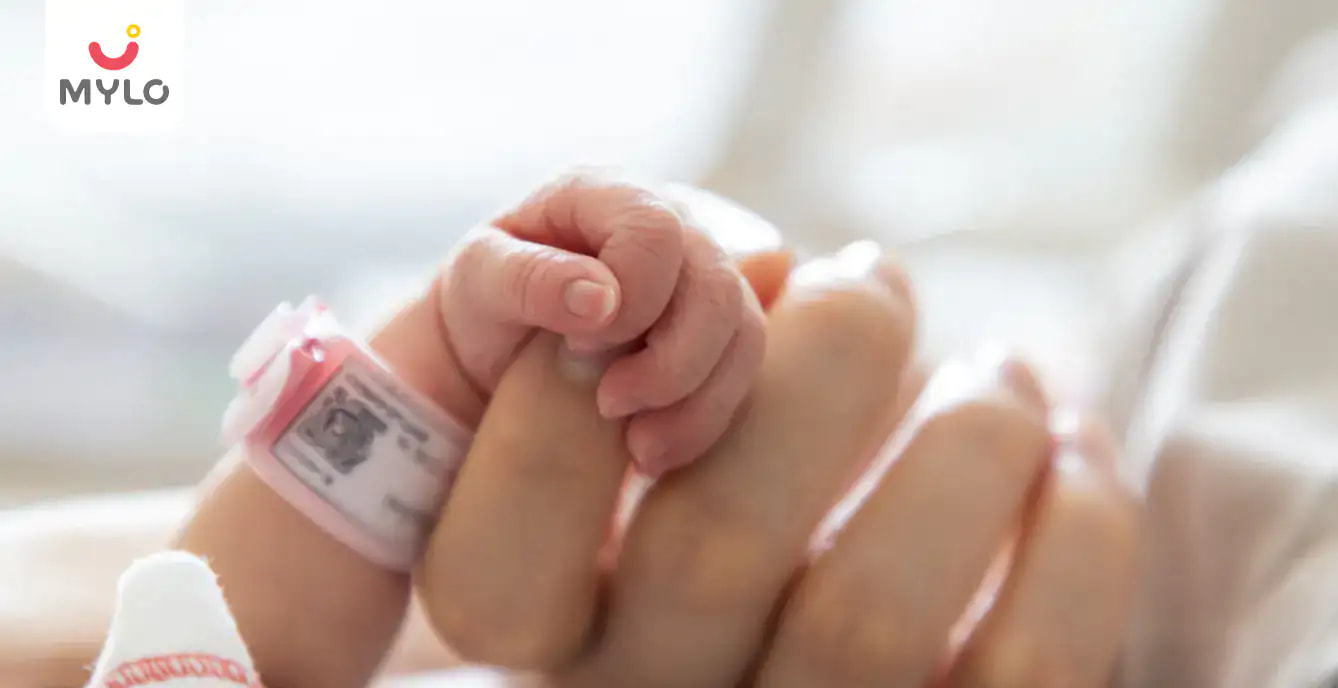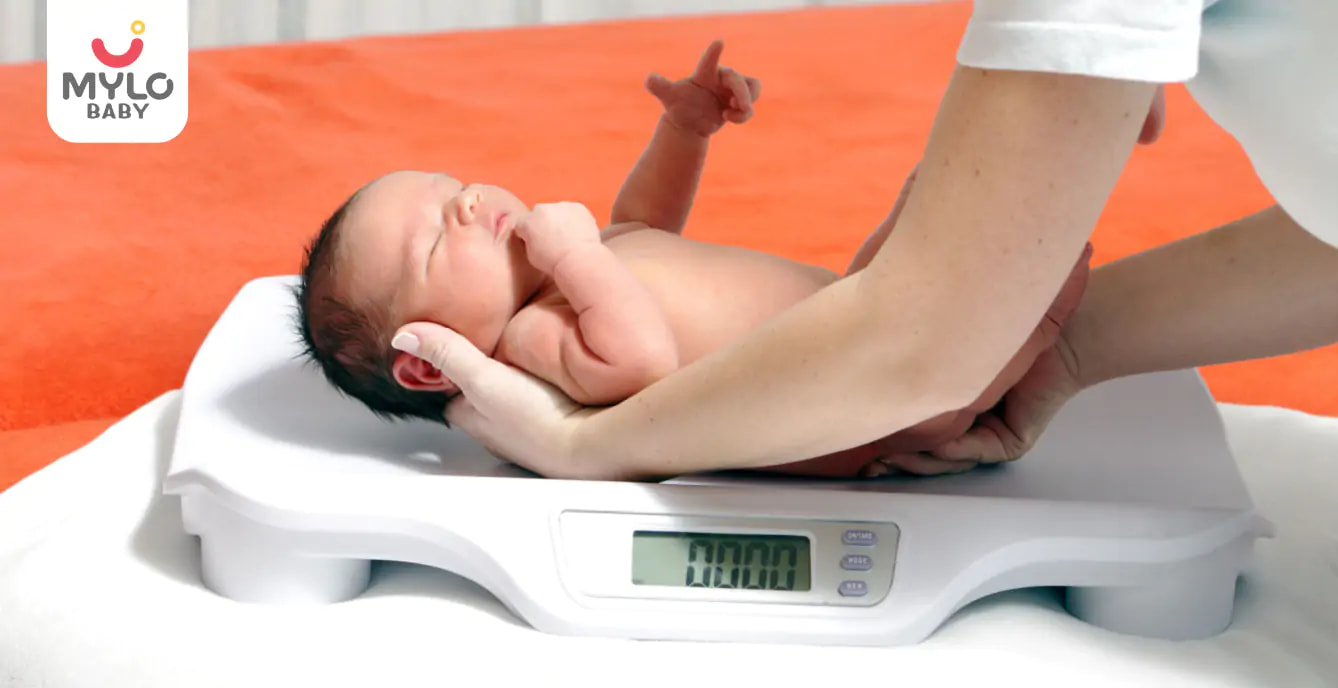Home

Illnesses & Infections

Neonatal Jaundice: Causes, Symptoms & Treatment
In this Article

Illnesses & Infections
Neonatal Jaundice: Causes, Symptoms & Treatment
Updated on 11 January 2023
Jaundice in newborn babies is a common concern but is usually harmless. It can the yellowing of the skin and even the eyes. The medical term used to denote jaundice in newborn babies is neonatal jaundice. The symptoms of jaundice in newborn baby usually develop two days after birth and tend to improve without treatment within two weeks.
In this article, we will understand neonatal jaundice in more detail and learn its symptoms, causes, treatment and prevention.
Why does my infant have jaundice?
Neonatal jaundice occurs when there is a build-up of bilirubin in the blood. Bilirubin is a yellow substance which is produced when the red blood cells that carry oxygen in the body are broken down. Since an infant’s liver is not yet fully mature, it’s less effective at removing the bilirubin from the blood. By the time babies turn about 2 weeks old, their liver becomes more effective at processing bilirubin and jaundice in newborn babies corrects itself.
How frequent is jaundice in newborns?
Neonatal jaundice is one of the most common conditions that affects newborn babies. According to research, 6 out of every 10 babies develop neonatal jaundice. This number goes up in premature babies where 8 out of every 10 babies develop jaundice. However, jaundice in newborn baby is often not a cause of concern and only a few babies require treatment.
Symptoms of neonatal jaundice
If your baby has neonatal jaundice, they will present the following symptoms:
-
Slightly yellow looking skin
-
Prominent yellowing in the eyes, inside the mouth, on the soles of their feet and palms of the hand
-
Sleepiness
-
Not wanting to feed or feeding as well as usual
-
Having a dark yellow urine
-
Having a pale poop
Causes of neonatal jaundice
The following can be the causes of neonatal jaundice:
1. Underdeveloped liver
Neonatal jaundice occurs when there is a build-up of bilirubin in the blood. Bilirubin is a yellow substance which is produced when the red blood cells that carry oxygen in the body are broken down. Since an infant’s liver is not yet fully mature, it’s less effective at removing the bilirubin from the blood.
2. Breastfeeding
Due to some unknown reasons, breastfeeding may increase the chances of jaundice in newborn babies. However, there’s no reason to stop breastfeeding your baby as the symptoms normally improve within a few weeks. Besides the benefits of breastfeeding far outweigh any risks associated with jaundice.
3. Underlying health conditions
Sometimes neonatal jaundice may also be caused by an underlying health condition, which is known as pathological jaundice. Some of these underlying conditions can be blood group incompatibility, an underactive thyroid gland, rhesus disease, Crigler-Najjar syndrome etc.
How to diagnose newborn jaundice?
Your baby will undergo a newborn physical examination after 72 hours of birth during which they will be checked for neonatal jaundice. But you should also keep an eye out for symptoms of newborn jaundice as it may develop a few weeks after returning home. If the doctor thinks your baby has neonatal jaundice, they may also conduct a bilirubin test.
Treatment of newborn jaundice
Neonatal jaundice usually gets better on its own within two weeks and most babies don’t require treatment. However, if your baby has a high level of bilirubin in their blood and their symptoms don’t improve over time, they may require treatment. The doctor may recommend admitting the baby to the hospital and treating them with phototherapy or an exchange transfusion.
Understanding baby jaundice
Neonatal jaundice is a common condition among babies and is not caused by any fault of the mother or the baby. If your baby develops newborn jaundice, it is because their liver is not yet fully developed and is less effective in removing the excess bilirubin in their blood.
How to prevent newborn jaundice?
Although there is no way to prevent neonatal jaundice, adequate feeding may reduce the chances of newborn jaundice. The best way to prevent jaundice is to feed the baby adequately. Breastfed babies should be given 8-12 feedings each day for the first few days of life. Whereas, formula-fed babies should be given 30-60 ml of formula milk every 2-3 hours for the first week of life.
When to call a physician?
You should call your doctor if your baby presents the following signs or symptoms as it may indicate a severe jaundice or complications:
-
The baby’s skin and eyes become more yellow
-
The skin on baby’s arms, legs or abdomen looks yellow
-
The baby seems lazy, sick or hard to awaken
-
The baby is not gaining weight or eating properly
-
The baby cries at a high pitch
If your baby shows any other unusual sign or symptom that concerns you, it’s best to consult the doctor. Neonatal jaundice is often not a cause for worry but you shouldn’t overlook any symptoms and give your baby the care and attention they need at the earliest.



Written by
Ravish Goyal
Official account of Mylo Editor
Read MoreGet baby's diet chart, and growth tips

Related Articles
Related Questions
Hello frnds..still no pain...doctor said head fix nhi hua hai..bt vagina me pain hai aur back pain bhi... anyone having same issues??

Kon kon c chije aisi hai jo pregnancy mei gas acidity jalan karti hain... Koi btayega plz bcz mujhe aksar khane ke baad hi samagh aata hai ki is chij se gas acidity jalan ho gyi hai. Please share your knowledge

I am 13 week pregnancy. Anyone having Storione-xt tablet. It better to have morning or night ???

Hlo to be moms....i hv a query...in my 9.5 wk i feel body joint pain like in ankle, knee, wrist, shoulder, toes....pain intensity is high...i cnt sleep....what should i do pls help....cn i cosult my doc.

Influenza and boostrix injection kisiko laga hai kya 8 month pregnancy me and q lagta hai ye plz reply me

Related Topics
RECENTLY PUBLISHED ARTICLES
our most recent articles

Depression
Depression During Pregnancy: Causes, Risks & Treatment

TV & OTT
Discover the 10 Best Shows on Netflix in 2023!

Diet & Nutrition
Eating Spicy Food During Pregnancy: Is it Safe or Not?

General Toddler
7 Tips to Help Your Toddler Transition From Potty to Toilet
Conception
Embryo Freezing: Purpose & Outcome
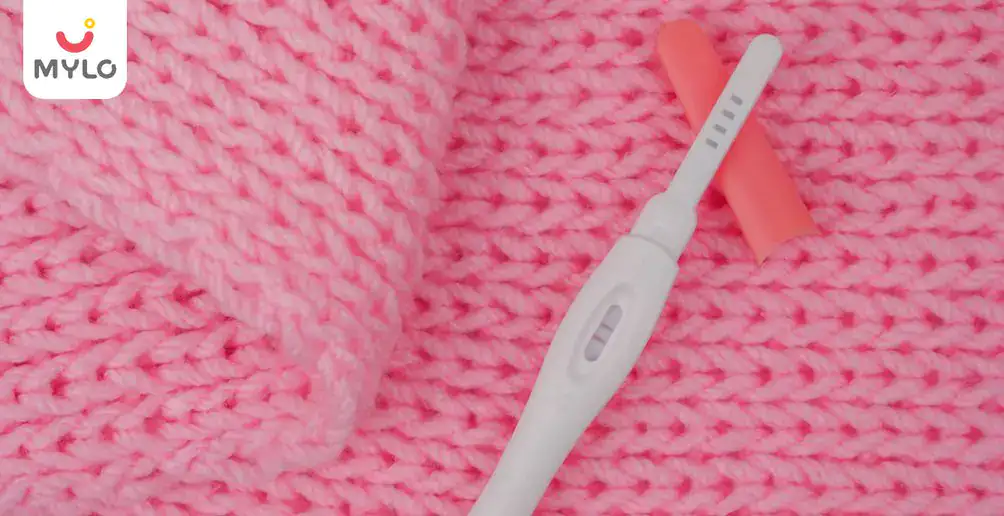
General Mother
Exercises to Help Strengthen Weakened Pelvic Floor Muscles
- How Moms are Approaching 2023 - Mylo's Survey This Year End
- Second Trimester of Pregnancy
- Third Trimester of Pregnancy
- Mylo Care Stretch Marks Cream Review
- How to Cure Breathlessness in Pregnancy Using 8 Natural Ways?
- Top 10 ways in which coconut water can help during pregnancy
- 7 Signs of Labor: Know What to Expect
- Points to Remember While Choosing Toys for Your Baby
- Top 10 Tips to Manage a Fussy Eater Toddler
- Baby Oral Care: When to Start Brushing Baby's Teeth
- Top 5 Supplements That You Need to Take During Pregnancy
- Reasons To Stop Working During Pregnancy
- Aspirin in Pregnancy : Can It Harm You or Your Baby?
- Top 10 Most Popular Bollywood Movies of 2022


AWARDS AND RECOGNITION

Mylo wins Forbes D2C Disruptor award

Mylo wins The Economic Times Promising Brands 2022
AS SEEN IN
















- Mylo Care: Effective and science-backed personal care and wellness solutions for a joyful you.
- Mylo Baby: Science-backed, gentle and effective personal care & hygiene range for your little one.
- Mylo Community: Trusted and empathetic community of 10mn+ parents and experts.
Product Categories
baby carrier | baby soap | baby wipes | stretch marks cream | baby cream | baby shampoo | baby massage oil | baby hair oil | stretch marks oil | baby body wash | baby powder | baby lotion | diaper rash cream | newborn diapers | teether | baby kajal | baby diapers | cloth diapers |



